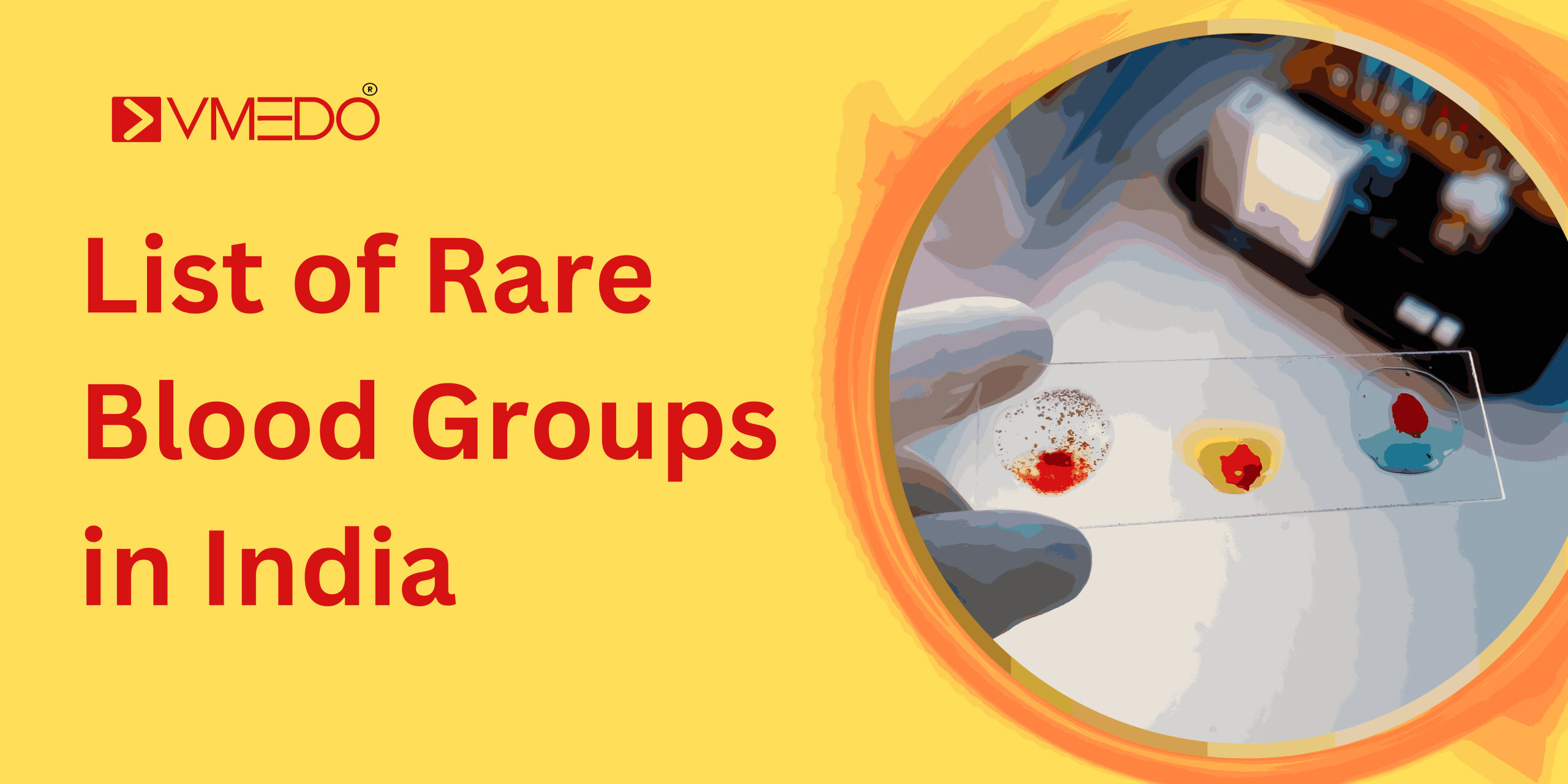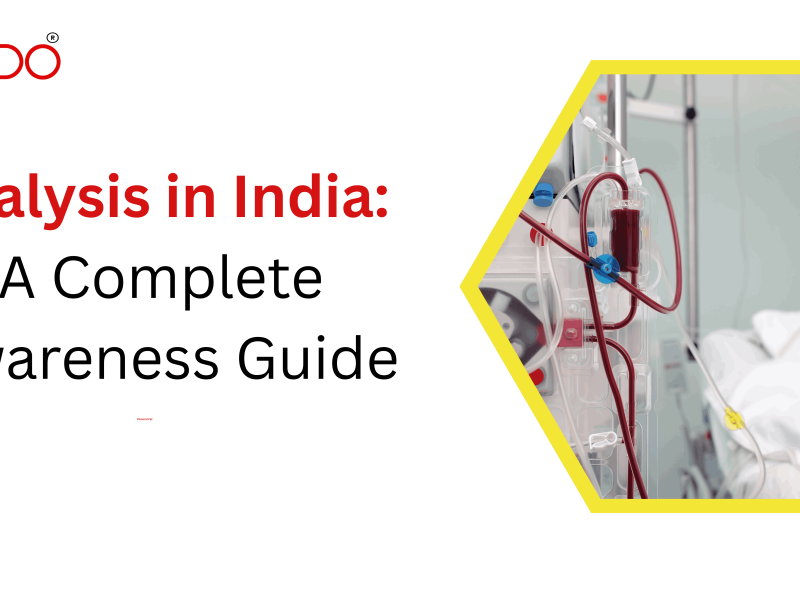Rare blood groups in India are a lesser-known but critical aspect of our healthcare system. While most of us are familiar with common blood types like A+, B+, or O-, there are unique and uncommon blood groups that occur in only a tiny fraction of the population. For people with these rare types, a medical emergency can quickly turn into a life-threatening situation—not because of the illness itself, but due to the unavailability of compatible blood.
In a diverse and densely populated country like India, these rare blood groups present both a challenge and an opportunity: a challenge due to the scarcity of donors, and an opportunity for compassionate individuals to step forward and make a life-saving difference.
This blog explores the world of rare blood groups in India — their types, prevalence, the challenges surrounding them, and how awareness and action can help bridge the gap. We’ll also look at common blood groups in India, why extended blood typing matters, and how you can be part of the life-saving solution.
Understanding common blood groups in India:
1. O Positive (O+)
- Most common blood group in India
- Prevalence: ~35-40%
- Universal donor for red cells (within Rh+ types)
2. B Positive (B+)
- Prevalence: ~30-35%
- More common in South Asia than in Western countries
3. A Positive (A+)
- Prevalence: ~20-25%
- Second most common globally, but third in India
4. AB Positive (AB+)
- Prevalence: ~5-8%
- Universal recipient (within Rh+ types)
5. O Negative (O−)
- Prevalence: ~1-2%
- Universal red cell donor; very important in emergencies
6. B Negative (B−)
- Prevalence: ~1%
- Rare; more common in Indian population than in some others
7. A Negative (A−)
- Prevalence: <1%
- Very limited availability
8. AB Negative (AB−)
- Rarest among the common blood types
- Prevalence: <0.5
- Universal plasma donor, but difficult to find in emergencies
What is a Rare Blood Group?
A rare blood group is defined as one that is found in less than 1 in 1000 people in a given population. It may be rare globally or within a specific ethnic group or region. Some blood types are rare due to the absence of common antigens or the presence of uncommon ones.
Blood becomes “rare” when:
- It lacks a high-frequency antigen found in over 99% of the population.
- It has an antibody that reacts against most donor blood.
- It has a unique combination of antigens that is extremely hard to match.
List of Rare Blood Groups Found in India
Here’s a look at some of the rarest blood groups in India:
1. Bombay Blood Group (hh or Oh)
- Prevalence: 1 in 10,000 in India (especially Maharashtra, Gujarat, Karnataka)
- Why it’s rare: Lacks the H antigen, which is a building block for A, B, and O blood types.
- Challenge: Cannot receive blood from O group donors; can only accept from other Bombay group individuals
- First discovered: In Mumbai, 1952 — hence the name.
2. Rh-null (Golden Blood)
- Prevalence: Fewer than 50 people reported worldwide; extremely rare in India.
- Why it’s rare: Completely lacks all Rh antigens (D, C, c, E, e).
- Challenge: Can donate to anyone with Rh system issues, but can only receive from another Rh-null donor
- Nickname: Called “Golden Blood” due to its life-saving potential and scarcity.
3. In(a+b−) / In(b−) Phenotype
- Prevalence: Very rare; found in the african descent
- Why it’s rare: Lacks the In(b) antigen
- Challenge: Alloantibodies can form during transfusion, making it dangerous to receive mismatched blood.
4. Kell (K−k−)
- Prevalence: Extremely rare globally; cases noted in the Europeans, Japanese, Africans, and Indians population
- Why it’s rare: Lacks both K (Kell) and k (Cellano) antigens.
- Challenge: Kell antibodies can cause severe hemolytic reactions or hemolytic disease of the newborn (HDN).
5. Diego Blood Group (Di(a−b−))
- Prevalence: Extremely rare in India; more common in Native American and East Asian populations.
- Why it’s rare: Lacks Diego system antigens.
- Challenge: Alloimmunization can occur if misdiagnosed, leading to transfusion complications.
6. Duffy Negative (Fy(a−b−))
- Prevalence: More common in people of African descent; very rare in India.
- Why it’s rare: Absence of Duffy antigens.
- Challenge: Sometimes resistant to certain types of malaria, but rare donors for transfusion purposes.
7. MNS System Variants
- Prevalence: Rare M+N−S−s− or other combinations have been found in isolated South East-Asian Countries
- Why it’s rare: Variants in the MNS system are highly individual-specific.
- Challenge: Cross-matching is difficult; advanced typing needed before transfusion.
India Makes Global Headlines with Discovery of New Blood Group ‘CRIB’ in Karnataka Woman
In a historic advancement for medical science, a new blood group antigen has been discovered in a 38-year-old woman from Kolar, Karnataka, making her the first person in the world known to carry this unique antigen. The discovery, which holds international importance, took place after the woman was admitted for a cardiac procedure and standard blood transfusion protocols failed due to unexplained incompatibility—even with universally compatible O Rh-positive blood.
The rare case was first examined at the Rotary Bangalore TTK Blood Centre and later escalated to the International Blood Group Reference Laboratory (IBGRL) in the UK. Following extensive testing over several months, a previously unidentified antigen in the Cromer blood group system was revealed. It has now been officially named CRIB, symbolizing its origin: Cromer (CR), India (I), and Bangalore (B).
The Case That Challenged Medical Norms
Initially classified as O Rh-positive, the woman required a routine blood transfusion before surgery. But her blood was found to be incompatible with all available O+ donor units, which shocked the medical team. Suspecting an underlying rare immunohematological factor, the hospital referred the case to the Advanced Immunohematology Reference Laboratory at Rotary Bangalore TTK.
Her blood reacted with every donor sample they tested—a condition known as panreactivity. Despite testing 20 of her close relatives, not a single match was found.
Remarkably, doctors managed to proceed with the cardiac surgery without transfusion, ensuring her safety while they sought answers. Her blood samples were then sent to IBGRL in Bristol, one of the world’s top rare blood research centers.
A New Antigen is Born: CRIB
After nearly ten months of research and molecular analysis, scientists confirmed the presence of a completely new antigen within the Cromer blood group system. Named CRIB, this antigen is now officially recognized in international transfusion science, with the name reflecting the location and significance of the discovery.
The finding was formally presented at the 35th Regional Congress of the International Society of Blood Transfusion (ISBT) in Milan, Italy, in June 2025, placing India on the global map for rare blood group innovations.
A Major Leap for India in Rare Blood Group Research
To address the urgent need for rare blood matching, the Rotary Bangalore TTK Blood Centre has now launched a dedicated Rare Donor Registry in association with:
- Karnataka State Blood Transfusion Council
- ICMR–National Institute of Immunohaematology (Mumbai)
- International Society of Blood Transfusion (ISBT)
The Role of Rare Donor Registries
A rare blood donor registry is a centralized database of people who are willing to donate rare blood types. It allows healthcare systems to:
- Match rare blood recipients with potential donors quickly
- Maintain a ready list of frozen blood units for emergencies
- Coordinate with international networks when needed
India currently has efforts underway through:
- National Institute of Immunohaematology (Mumbai)
- Indian Red Cross Society (regional branches)
- Select private blood banks and hospitals
However, a national-level integrated registry is the need of the hour.
How You Can Help
- Get Tested Beyond ABO and Rh:
Ask for extended phenotyping when donating blood or during health checkups. You might discover you belong to a rare group. - Register as a Donor:
If you have a rare blood group, register with a reliable rare blood donor organization or blood bank. - Donate Regularly:
Stay healthy and committed to donating blood. A single donation can save multiple lives. - Spread Awareness:
Talk about rare blood groups in your community, especially if you’re in a region with high prevalence like Maharashtra or Karnataka. - Support Blood Donation Drives:
Encourage your workplace, college, or community to host regular blood camps with extended blood group testing.
Rare blood groups may be uncommon, but their impact is profound. In a country like India, where population diversity is vast and medical infrastructure is still developing in rural areas, the need for awareness, proper testing, and a reliable donor network is urgent.
By understanding and supporting rare blood group initiatives, we can build a safety net that saves lives — even the rarest ones.



